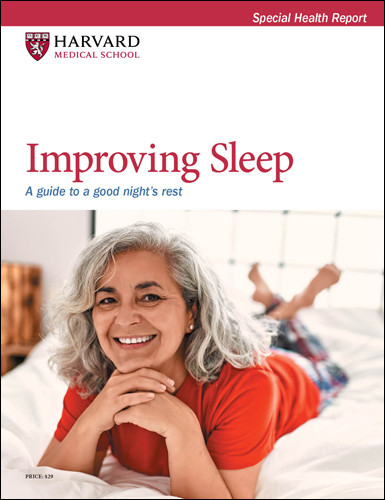Take the Dry January challenge
Why you should try abstaining from alcohol for a month.
- Reviewed by Howard E. LeWine, MD, Chief Medical Editor, Harvard Health Publishing; Editorial Advisory Board Member, Harvard Health Publishing

Every January, millions of people commit to abstaining from drinking alcohol (beer, wine, and spirits) for one month. Known as "Dry January," the public health initiative was launched in 2013 by Alcohol Change UK to address the role alcohol plays in people's lives and health.
"Dry January can be a useful tool to help people change their relationships with alcohol," says Dr. Rocco Iannucci, director of the Fernside Residential Treatment Program at Harvard-affiliated McLean Hospital. "People take the Dry January challenge as a step toward changing their alcohol habits or to explore the effect a monthlong break can have on their health."
Several kinds of benefits
No matter their relationship with alcohol, many people see and feel some benefits after an alcohol-free month. "Some evidence has found that after 30 days of no drinking, people report they sleep better, have more energy, lost weight, and lowered their blood pressure," says Dr. Iannucci.
Even occasional drinkers can discover some benefits. "For some, Dry January offers a short-term challenge similar to other New Year health endeavors, like starting an exercise program and eating healthier," says Dr. Iannucci. "There's no downside to trying it."
He suggests approaching Dry January as a learning experience. Write down the reasons you want to do it. For example, do you want to achieve total abstinence? Reduce the amount and frequency you drink? Lose weight? Or simply change how you view alcohol, like not needing to drink during social activities?
After a month, reflect on your drinking patterns, how you feel, and how you want to move forward. Do you want to return to moderate drinking or cut back more? Or has the experience made you feel like quitting alcohol? Did you substitute another habit — like eating more snack foods — for drinking? How did you feel physically and mentally?
"You may decide to continue Dry January for another month and then evaluate again," says Dr. Iannucci.
Is alcohol healthy?Some observational studies of moderate drinkers — no more than one to two standard drinks per day for men — have shown a link between alcohol intake and better heart health. However, results of more recent studies have suggested that alcohol doesn't offer heart protection and, in fact, may actually contribute to health problems. Still, none of these studies proves cause and effect. Researchers speculate that people's overall health habits may play a significant role in whether alcohol helps or hinders. Nowadays, the general consensus is that if you don't drink, there's no health-based reason to begin. If you drink only occasionally, don't increase your intake. |
Tips to staying dry
Here are some tips from Dr. Iannucci on how to do Dry January. One important caveat: daily drinkers should check with their physicians before they stop drinking. Abruptly quitting alcohol can lead to potentially dangerous withdrawal symptoms in people with an alcohol dependency.
Find a substitute nonalcoholic drink. For social situations, or when you crave a cocktail, reach for an alcohol-free beverage, like sparkling water, soda, or "virgin" drinks (nonalcoholic versions of alcoholic drinks). Nonalcoholic beer or wine are options, but some brands still contain up to 0.5% alcohol by volume, so check the label. Sugar is often added to these beverages to improve the taste, so choose low-sugar brands.
Avoid temptations. Keep alcohol out of your house. When you are invited to someone's home, bring nonalcoholic drinks with you.
Create a support group. Let friends and family know your intentions and encourage them to keep you accountable. Better yet, enlist someone to do the challenge with you.
Track your progress on your phone. One option is the Try Dry app (download it at /dryjanuary.) This free app tracks your drinking, helps you set personal goals, and offers motivational information like calorie counts and money saved from not drinking. You can use it for either cutting back or cutting out alcohol, depending on your goal.
Don't give up. If you slip up, don't feel guilty. Just begin again the next day.
If you struggle during the month or give up after a week or so, you may need extra help cutting back. "The experience may reveal an underlying issue with alcohol you were unaware of that requires medical attention," says Dr. Iannucci. "You may not realize how much you drink regularly until you try to stop."
Image: © OntheRunPhoto/Getty Images
About the Author

Matthew Solan, Executive Editor, Harvard Men's Health Watch
About the Reviewer

Howard E. LeWine, MD, Chief Medical Editor, Harvard Health Publishing; Editorial Advisory Board Member, Harvard Health Publishing
Disclaimer:
As a service to our readers, Harvard Health Publishing provides access to our library of archived content. Please note the date of last review or update on all articles.
No content on this site, regardless of date, should ever be used as a substitute for direct medical advice from your doctor or other qualified clinician.
















